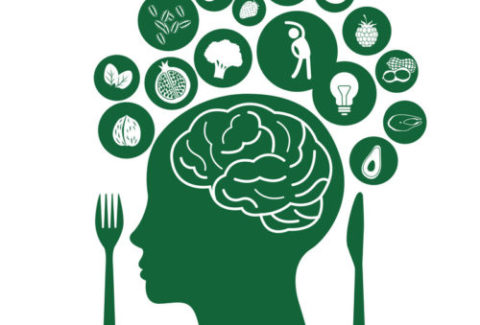Mindful Eating: A Path to Mental Well-Being
In the hustle and bustle of modern life, where time seems to slip away in the blink of an eye, the concept of mindful eating emerges as a guiding light toward holistic well-being.[1] It transcends the mere act of consuming food, inviting us to savor the richness of each moment and cultivate a profound connection between body and mind. In this exploration, we unravel the transformative relationship between mindful eating and mental health, discovering the potential for a more nourished and harmonious existence.[2]
Defining Mindful Eating
At its core, mindful eating is a practice that transcends the mechanical process of putting food in our mouths. It beckons us to be fully present, engaging our senses and awareness in the act of eating.[3] Mindful eating is a departure from the autopilot mode that often characterizes our relationship with food, urging us to savor flavors, textures, and the experience of nourishment.
The Mind-Body Connection, and Awareness of Emotional Eating
As we delve into the heart of mindful eating, we uncover the intricate dance between the mind and body[4]. This practice encourages a heightened awareness of bodily sensations, fostering a deeper connection with the signals our body sends. By tuning in to how our body responds to different foods, we lay the foundation for a more intuitive and attuned approach to nourishment. One of the profound impacts of mindful eating lies in its ability to bring awareness[5] to emotional triggers for eating. By cultivating mindfulness during meals, individuals can distinguish between physical hunger and emotional cravings, breaking the cycle of using food as a coping mechanism.[6] This heightened emotional awareness becomes a cornerstone for fostering a healthier relationship with both food and one’s own emotions.
Stress Reduction, and Breaking Free from Unhealthy Patterns
In a world where stress is an omnipresent companion, mindful eating emerges as a powerful antidote. Slowing down the pace, savoring each bite, and being fully present during meals can have a profound impact on stress reduction.[7] The act of mindful eating induces a relaxation response, promoting a sense of calm that extends beyond the dining table into our daily lives. As such, mindful eating becomes a beacon of hope for those grappling with disordered eating[8] patterns. By applying mindfulness to the act of consuming food, individuals can disrupt interfering thought patterns associated with eating, fostering an optimal and balanced relationship with sustenance. This practice encourages a departure from rigid rules and invites an exploration of intuitive eating.
Fostering Positive Relationships with Food, and Practical Implementation in Daily Life
Beyond the physical act of eating, mindful eating contributes to the cultivation of an optimal and sustainable relationship with food.[9] It invites individuals to appreciate the nourishing qualities of food, fostering gratitude and respect for the sustenance that fuels our bodies. This shift in perspective can have a ripple effect on self-esteem, body image, and overall mental well-being. In this vein, making mindful eating a part of our daily routine doesn’t require a radical overhaul. Simple practices such as paying attention to the colors and textures of food, chewing slowly, and savoring each bite can pave the way for a more mindful approach. Creating a conducive environment, free from distractions, further enhances the experience of mindful eating.[10]
Beyond the Plate
The impact of mindful eating extends far beyond the plate. It becomes a way of life—a mindfulness practice that influences our daily choices related to nutrition and self-care.[11] By embracing mindfulness in all aspects of our lives, we cultivate a holistic sense of well-being that transcends the act of eating and permeates our entire existence. Mindful eating is not just a practice; it’s an invitation to live with intention and awareness. As we savor the flavors of our food, we also savor the moments of our lives. In this journey, we find that mindful eating is not merely about what we eat but how we eat, fostering a deep connection between body and mind. By embracing this transformative practice, we embark on a path toward a more balanced, nourished, and harmonious existence—one mindful bite at a time.
[1] Kristeller, Jean L., and Kevin D. Jordan. “Mindful eating: Connecting with the wise self, the spiritual self.” Frontiers in Psychology 9 (2018): 1271.
[2] Khan, Zaynah, and Zainab F. Zadeh. “Mindful eating and it’s relationship with mental well-being.” Procedia-Social and behavioral sciences 159 (2014): 69-73.
[3] Grider, Hannah S., Steve M. Douglas, and Hollie A. Raynor. “The influence of mindful eating and/or intuitive eating approaches on dietary intake: a systematic review.” Journal of the Academy of Nutrition and Dietetics 121.4 (2021): 709-727.
[4] Cherpak, Christine E. “Mindful eating: a review of how the stress-digestion-mindfulness triad may modulate and improve gastrointestinal and digestive function.” Integrative Medicine: A Clinician’s Journal 18.4 (2019): 48.
[5] Román, Nóra, and Róbert Urbán. “Mindful awareness or self-regulation in eating: an investigation into the underlying dimensions of mindful eating.” Mindfulness 10 (2019): 2110-2120.
[6] Sagui-Henson, Sara J., et al. “Negative Mood and Food Craving Strength Among Women with Overweight: Implications for Targeting Mechanisms Using a Mindful Eating Intervention.” Mindfulness 12 (2021): 2997-3010.
[7] Grider, Hannah S., Steve M. Douglas, and Hollie A. Raynor. “The influence of mindful eating and/or intuitive eating approaches on dietary intake: a systematic review.” Journal of the Academy of Nutrition and Dietetics 121.4 (2021): 709-727.
[8] Anderson, Lisa M., et al. “Contributions of mindful eating, intuitive eating, and restraint to BMI, disordered eating, and meal consumption in college students.” Eating and Weight Disorders-Studies on Anorexia, Bulimia and Obesity 21 (2016): 83-90.
[9] Bays, Jan Chozen. Mindful Eating: A Guide to Rediscovering a Healthy and Joyful Relationship with Food (Revised Edition). Shambhala Publications, 2017.
[10] Hong, Phan Y., et al. “The positive impact of mindful eating on expectations of food liking.” Mindfulness 2 (2011): 103-113.
[11] Beccia, Ariel L., et al. “Women’s experiences with a mindful eating program for binge and emotional eating: a qualitative investigation into the process of change.” The journal of alternative and complementary medicine 26.10 (2020): 937-944.









